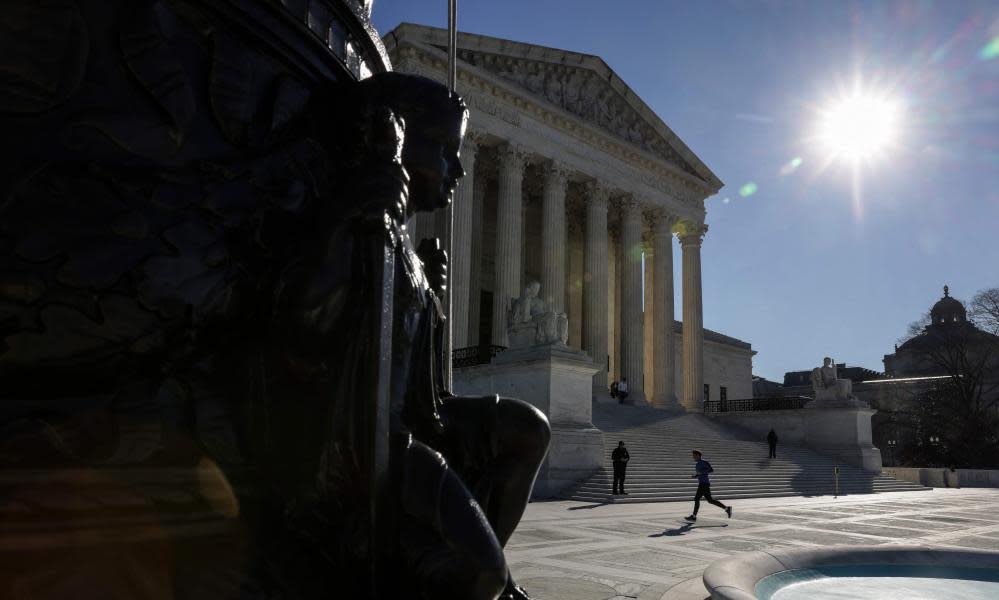Surprise US supreme court ruling could help Democrats take House in 2024

The supreme court’s decision on Thursday upholding a critical provision of the Voting Rights Act could upend congressional maps across several southern US states, a change that is likely to boost Democrats’ chances in 2024 House races and give Black voters more opportunities to elect candidates of their choice.
The court’s surprise 5-4 ruling means that Alabama will have to redraw its congressional map to add another district where Black voters comprise a majority of the district’s voting age population. Under the Republican plan rejected by the court, Black voters have a majority in just one of the state’s seven congressional districts, despite representing about a quarter of the state’s population. That is the only congressional district in the state represented by a Democrat.
Related: How Alabama discriminated against Black voters – visualized
The decision has implications in Alabama and beyond. A three-judge panel in Louisiana last year ordered the state to draw an additional majority-Black district, but the supreme court halted that ruling while it considered the Alabama case.
“You could see new maps in several of these southern states where Black and other minority voters have really been underrepresented for some time,” said David Daley, a redistricting expert and senior fellow at FairVote, an organization that promotes electoral reform.
The supreme court’s ruling upholds section 2 of the Voting Rights Act, a provision that prohibits voting procedures that discriminate on the basis of race.
There are 31 cases with section 2 claims pending in 10 states, including Georgia, Mississippi and Texas, according to a tally by Democracy Docket, a left-leaning organization. The supreme court’s decision on Thursday does not necessarily mean that plaintiffs in all of those cases will prevail because section 2 cases are notoriously fact-specific and often turn on the specific demographics, turnout and geography of a state. In his opinion on Thursday, Roberts noted that few section 2 cases ultimately prevail. “Since 2010, plaintiffs nationwide have apparently succeeded in fewer than ten §2 suits,” he wrote.
Still, there are likely to be huge political consequences.
“The landmark decision in Allen v Milligan could reverberate across the deep south, leading to the creation of new Black-majority, strongly Democratic seats in multiple states,” Dave Wasserman, an analyst for the non-partisan Cook Political Report, wrote in a blogpost. “Politically, the ruling could shake up the 2024 battle for the House, send shockwaves beyond Alabama and potentially offset a new gerrymander Republicans are likely to impose in North Carolina. The key states to watch are Alabama, Louisiana, Georgia and South Carolina.”
The Cook Political Report immediately changed its prediction for the partisan results in four districts – two in Alabama and two in Louisiana – from favoring Republicans to being a tossup. It also shifted one district in North Carolina currently represented by a Democrat to be more Democratic friendly. The site cautioned that the exact predictions would depend on how the lines were drawn. Republicans currently have a majority of a few seats in the US House.
In a statement, Ashley Shelton, president of the Power Coalition for Equity and Justice, a Louisiana civic engagement organization, noted the consequences of the ruling for Louisiana voters and said that “with this legal precedent, we will continue to make fair representation possible in Louisiana”.

